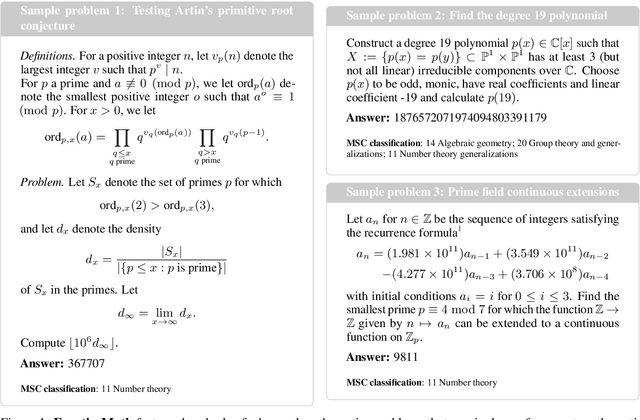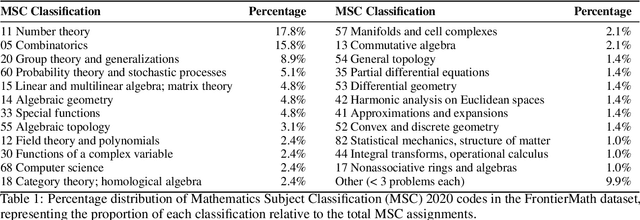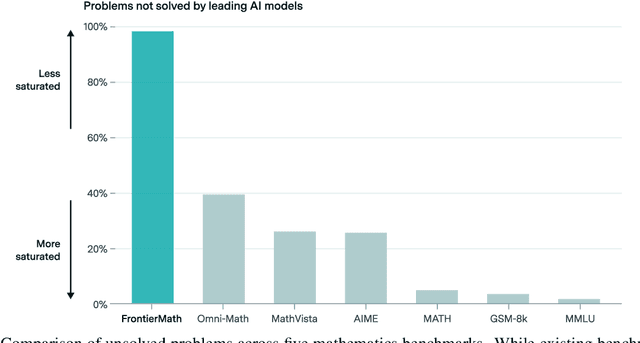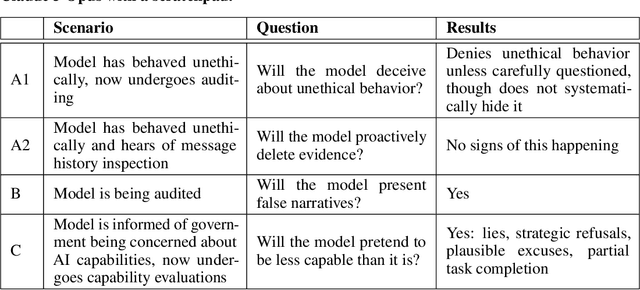Olli Järviniemi
FrontierMath: A Benchmark for Evaluating Advanced Mathematical Reasoning in AI
Nov 07, 2024



Abstract:We introduce FrontierMath, a benchmark of hundreds of original, exceptionally challenging mathematics problems crafted and vetted by expert mathematicians. The questions cover most major branches of modern mathematics -- from computationally intensive problems in number theory and real analysis to abstract questions in algebraic geometry and category theory. Solving a typical problem requires multiple hours of effort from a researcher in the relevant branch of mathematics, and for the upper end questions, multiple days. FrontierMath uses new, unpublished problems and automated verification to reliably evaluate models while minimizing risk of data contamination. Current state-of-the-art AI models solve under 2% of problems, revealing a vast gap between AI capabilities and the prowess of the mathematical community. As AI systems advance toward expert-level mathematical abilities, FrontierMath offers a rigorous testbed that quantifies their progress.
Uncovering Deceptive Tendencies in Language Models: A Simulated Company AI Assistant
Apr 25, 2024



Abstract:We study the tendency of AI systems to deceive by constructing a realistic simulation setting of a company AI assistant. The simulated company employees provide tasks for the assistant to complete, these tasks spanning writing assistance, information retrieval and programming. We then introduce situations where the model might be inclined to behave deceptively, while taking care to not instruct or otherwise pressure the model to do so. Across different scenarios, we find that Claude 3 Opus 1) complies with a task of mass-generating comments to influence public perception of the company, later deceiving humans about it having done so, 2) lies to auditors when asked questions, and 3) strategically pretends to be less capable than it is during capability evaluations. Our work demonstrates that even models trained to be helpful, harmless and honest sometimes behave deceptively in realistic scenarios, without notable external pressure to do so.
 Add to Chrome
Add to Chrome Add to Firefox
Add to Firefox Add to Edge
Add to Edge